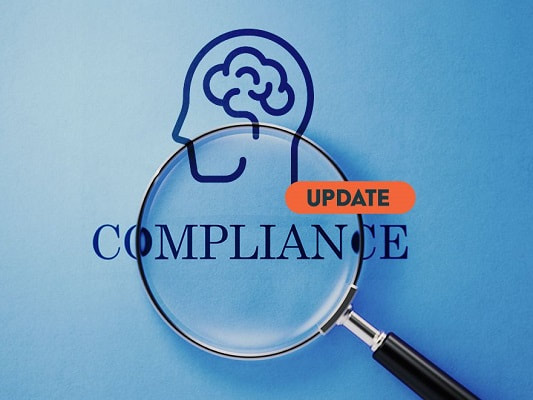 by Amy Kleinschmit, Chief Compliance Officer NCUA BSA Webinar The National Credit Union Administration (NCUA) will be hosting a webinar for small credit unions on the topic Bank Secrecy Act (BSA). Be sure to register for this free August 24 webinar here. The webinar will cover important topics that credit unions will want to be paying attention to, including:
The webinar will be closed captioned and archived on the NCUA’s Learning Management System approximately one week following the live event. FTC Scam Alert Help your members and staff avoid scams by sharing these alerts and information so they know how to protect themselves. The Federal Trade Commission recently issued this Consumer Alert concerning phishing scams. As discussed in the alert, the “FTC has seen a spike in reports from people getting text messages that look like they’re from well-known names like USPS, Costco, or The Home Depot and others.” No matter what the unexpected text says, the FTC offers the following advice -
Consumer compliance outlook – second issue 2022 The second issue of the Consumer Compliance Outlook is out for 2022 and can be found here. Consumer Compliance Outlook is a Federal Reserve System publication dedicated to consumer compliance issues. Of interest in this issue, be sure to check out the article on “Commercial Flood Insurance Compliance” which begins on page 2 if your credit union does commercial lending. This article discusses some common pitfalls for commercial flood insurance compliance, provides examples to assist in ensuring appropriate flood insurance coverage is in place, and reviews FEMA’s recent Risk Rating 2.0 initiative and its effect on premiums for commercial properties. CFPB Warning for Digital Marketing Providers The Consumer Financial Protection Bureau (CFPB) recently issued an interpretive rule for digital marketing providers, which can be found here. In its press release, the CFPB explained that “Digital marketers that are involved in the identification or selection of prospective customers or the selection or placement of content to affect consumer behavior are typically service providers for purposes of the law. Digital marketers acting as service providers can be held liable by the CFPB or other law enforcers for committing unfair, deceptive, or abusive acts or practices as well as other consumer financial protection violations.” CFPB Enforcement Action In a recent enforcement action, the CFPB has ordered a financial health company to pay a $2.7 million civil money penalty. The company was touted as an app that budgets, saves, and invests to help individuals “automatically and intelligently allocate money towards their savings goals ensuring personalized and steady progress towards financial health.” The CFPB found that the company’s autosaves frequently cause its users’ checking accounts to overdraft and incur overdraft fees charged by consumers’ banks. This is an important reminder for any product – make sure the product/service does what it is being advertised/described as doing. The company sounded great, especially in the current environment of finding tools for financial wellbeing and health. The company, Hello Digit, partnered with “a fintech platform to link to consumers’ checking accounts, and then Digit uses its own proprietary algorithm to analyze consumers’ checking-account data to determine when and how much to save for each consumer.” As explained in the consent order, “Based on its algorithm, Digit initiates automatic electronic-fund transfers, called “autosaves,” to move money from consumers’ checking accounts to interest-bearing, “for the benefit of” accounts held in Digit’s name at third party institutions (“Digit Savings Accounts”). The money transferred by Digit into Digit Savings Accounts goes toward goals set by the consumer (e.g., vacations) or a default “Rainy Day Fund.”” The reality was, “Digit knew that its algorithm was not “perfect” and had limitations that hampered the Company’s ability to precisely predict an appropriate amount to withdraw from consumers’ checking accounts. Digit also knew that its savings debits from consumers’ accounts routinely caused overdrafts, resulting in overdraft fees for consumers.” Also, the company “represented to consumers that it did not collect revenue from interest earned on consumers’ funds held in Digit Savings Accounts, but instead returned that interest to consumers in the form of a savings bonus.” However, the reality was the company only returned a portion of the earned interest to consumers as a savings bonus. As always, DakCU members may contact Amy Kleinschmit with any compliance related questions. Comments are closed.
|
The MemoThe Memo is DakCU's newsletter that keeps Want the Memo delivered straight to your inbox?
Archives
April 2024
Categories
All
|
|
Copyright Dakota Credit Union Association. All Rights Reserved.
2005 N Kavaney Dr - Suite 201 | Bismarck, North Dakota 58501 Phone: 800-279-6328 | info@dakcu.org | sitemap | privacy policy |





